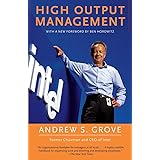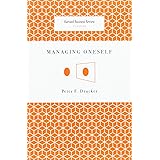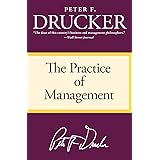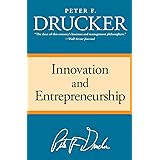
Enjoy fast, free delivery, exclusive deals, and award-winning movies & TV shows with Prime
Try Prime
and start saving today with fast, free delivery
Amazon Prime includes:
Fast, FREE Delivery is available to Prime members. To join, select "Try Amazon Prime and start saving today with Fast, FREE Delivery" below the Add to Cart button.
Amazon Prime members enjoy:- Cardmembers earn 5% Back at Amazon.com with a Prime Credit Card.
- Unlimited Free Two-Day Delivery
- Streaming of thousands of movies and TV shows with limited ads on Prime Video.
- A Kindle book to borrow for free each month - with no due dates
- Listen to over 2 million songs and hundreds of playlists
- Unlimited photo storage with anywhere access
Important: Your credit card will NOT be charged when you start your free trial or if you cancel during the trial period. If you're happy with Amazon Prime, do nothing. At the end of the free trial, your membership will automatically upgrade to a monthly membership.
Buy new:
-43% $11.39$11.39
Ships from: Amazon.com Sold by: Amazon.com
Save with Used - Acceptable
$9.99$9.99
Ships from: Amazon Sold by: 2nd Life Books

Download the free Kindle app and start reading Kindle books instantly on your smartphone, tablet, or computer - no Kindle device required.
Read instantly on your browser with Kindle for Web.
Using your mobile phone camera - scan the code below and download the Kindle app.

OK
Image Unavailable
Color:
-

-
-
- To view this video download Flash Player
 Audible sample Sample
Audible sample Sample 


The Effective Executive: The Definitive Guide to Getting the Right Things Done (Harperbusiness Essentials) Paperback – January 3, 2006

Explore your book, then jump right back to where you left off with Page Flip.
View high quality images that let you zoom in to take a closer look.
Enjoy features only possible in digital – start reading right away, carry your library with you, adjust the font, create shareable notes and highlights, and more.
Discover additional details about the events, people, and places in your book, with Wikipedia integration.
There is a newer edition of this item:
Purchase options and add-ons
What makes an effective executive?
The measure of the executive, Peter F. Drucker reminds us, is the ability to "get the right things done." This usually involves doing what other people have overlooked as well as avoiding what is unproductive. Intelligence, imagination, and knowledge may all be wasted in an executive job without the acquired habits of mind that mold them into results.
Drucker identifies five practices essential to business effectiveness that can, and must, be learned:- Managing time
- Choosing what to contribute to the organization
- Knowing where and how to mobilize strength for best effect
- Setting the right priorities
- Knitting all of them together with effective decision-making
Ranging widely through the annals of business and government, Peter F. Drucker demonstrates the distinctive skill of the executive and offers fresh insights into old and seemingly obvious business situations.
- Print length208 pages
- LanguageEnglish
- Publication dateJanuary 3, 2006
- Dimensions5.31 x 0.47 x 8 inches
- ISBN-100060833459
- ISBN-13978-0060833459
The Amazon Book Review
Book recommendations, author interviews, editors' picks, and more. Read it now.
Frequently bought together

Similar items that may ship from close to you
Editorial Reviews
About the Author
Peter F. Drucker is considered the most influential management thinker ever. The author of more than twenty-five books, his ideas have had an enormous impact on shaping the modern corporation. Drucker passed away in 2005.
Excerpt. © Reprinted by permission. All rights reserved.
The Effective Executive
The Definitive Guide to Getting the Right Things DoneBy Peter F. DruckerHarperCollins Publishers, Inc.
Copyright © 2006 Peter F. DruckerAll right reserved.
ISBN: 0060833459
Chapter One
Effectiveness Can Be Learned
To be, effective is the job of the executive. "To effect" and "to execute" are, after all, near-synonyms. Whether he works in a business or in a hospital, in a government agency or in a labor union, in a university or in the army, the executive is, first of all, expected to get the right things done. And this is simply that he is expected to be effective.
Yet men of high effectiveness are conspicuous by their absence in executive jobs. High intelligence is common enough among executives. Imagination is far from rare. The level of knowledge tends to be high. But there seems to be little correlation between a man's effectiveness and his intelligence, his imagination or his knowledge. Brilliant men are often strikingly ineffectual; they fail to realize that the brilliant insight is not by itself achievement. They never have learned that insights become effectiveness only through hard systematic work. Conversely, in every organization there are some highly effective plodders. While others rush around in the frenzy and busyness which very bright people so often confuse with "creativity," the plodder puts one foot in front of the other and gets there like the tortoise in the old fable.
Intelligence, imagination, and knowledge are essential resources, but only effectiveness converts them into results. By themselves, they only set limits to what can be attained.
Why We Need Effective Executives
All this should be obvious. But why then has so little attention been paid to effectiveness, in an age in which there are mountains of books and articles on every other aspect of the executive's tasks?
One reason for this neglect is that effectiveness is the specific technology of the knowledge worker within an organization. Until recently, there was no more than a handful of these around.
For manual work, we need only efficiency; that is, the ability to do things right rather than the ability to get the right things done. The manual worker can always be judged in terms of the quantity and quality of a definable and discrete output, such as a pair of shoes. We have learned how to measure efficiency and how to define quality in manual work during the last hundred years-to the point where we have been able to multiply the output of the individual worker tremendously.
Formerly, the manual worker-whether machine operator or front-line soldier-predominated in an organizations. Few people of effectiveness were needed: those at the top who gave the orders that others carried out. They were so small a fraction of the total work population that we could, rightly or wrongly, take their effectiveness for granted. We could depend on the supply of "naturals," the few people in any area of human endeavor who somehow know what the rest of us have to learn the hard way.
This was true not only of business and the army. It is hard to realize today that "government" during the American Civil War a hundred years ago meant the merest handful of people. Lincoln's Secretary of War had fewer than fifty civilian subordinates, most of them not "executives' and policy-makers but telegraph clerks. The entire Washington establishment of the U.S. government in Theodore Roosevelt's time, around 1900, could be comfortably housed in any one of the government buildings along the Mall today.
The hospital of yesterday did not know any of the "health-service professionals," the X-ray and lab technicians, the dieticians and therapists, the social workers, and so on, of whom it now employs as many as two hundred and fifty for every one hundred patients. Apart from a few nurses, there were only cleaning women, cooks and maids. The physician was the knowledge worker, with the nurse as his aide.
In other words, up to recent times, the major problem o organization was efficiency in the performance of the manual worker who did what he had been told to do. Knowledge workers were not predominant in organization.
In fact, only a small fraction of the knowledge workers of earlier days were part of an organization. Most of them worked by themselves as professionals, at best with a clerk. Their effectiveness or lack of effectiveness concerned only themselves and affected only themselves.
Today, however, the large knowledge organization is the central reality. Modem society is a society of large organized institutions. In every one of them, including the armed services, the center of gravity has shifted to the knowledge worker, the man who puts to work what he has between his ears rather than the brawn of his muscles or the skill of his hands. Increasingly, the majority of people who have been schooled to use knowledge, theory, and concept rather than physical force or manual skill work in an organization and are effective insofar as they can make a contribution to the organization.
Now effectiveness can no longer be taken for granted. Now it can no longer be neglected.
Continues...
Excerpted from The Effective Executiveby Peter F. Drucker Copyright © 2006 by Peter F. Drucker. Excerpted by permission.
All rights reserved. No part of this excerpt may be reproduced or reprinted without permission in writing from the publisher.
Excerpts are provided by Dial-A-Book Inc. solely for the personal use of visitors to this web site.
Product details
- Publisher : Harper Business; Revised edition (January 3, 2006)
- Language : English
- Paperback : 208 pages
- ISBN-10 : 0060833459
- ISBN-13 : 978-0060833459
- Item Weight : 5.6 ounces
- Dimensions : 5.31 x 0.47 x 8 inches
- Best Sellers Rank: #1,155 in Books (See Top 100 in Books)
- #2 in Management Science
- #25 in Business Management (Books)
- #44 in Leadership & Motivation
- Customer Reviews:
About the author

Peter F. Drucker (1909-2005) was considered the top management thinker of his time. He authored over 25 books, with his first, The End of Economic Man published in 1939. His ideas have had an enormous impact on shaping the modern corporation. One of his most famous disciples alive today is Jack Welch. He was a teacher, philosopher, reporter and consultant.
Customer reviews
Customer Reviews, including Product Star Ratings help customers to learn more about the product and decide whether it is the right product for them.
To calculate the overall star rating and percentage breakdown by star, we don’t use a simple average. Instead, our system considers things like how recent a review is and if the reviewer bought the item on Amazon. It also analyzed reviews to verify trustworthiness.
Learn more how customers reviews work on AmazonReviews with images
-
Top reviews
Top reviews from the United States
There was a problem filtering reviews right now. Please try again later.
* * *
This is the 50th anniversary edition of a book first published in 1967. Jim Collins provides the Foreword and Zachary First the Afterword. In my opinion, Peter Drucker (1909-2005) is the most influential business thinker as indicated by the endless list of other thought leaders who continue to acknowledge his value and significance to their own work. He always insisted on referring to himself as a “student” or “bystander.” With all due respect to his wishes, I have always viewed him as a pioneer who surveyed and defined dimensions of the business world that no one else had previously explored.
Consider this passage in the Foreword: “Here are ten lessons I learned from Peter Drucker and this book, and that I offer as a small portal of entry into the mind of the greatest management thinker off all time.” These are the lessons that Collins cites and discusses:
1. First, manage thyself.
2. Do what you’re made for.
3. Work how you work best (and let others do the same).
4. Count your time, and make it count.
5. Prepare better meetings.
6. Don’t make a hundred decisions when one will do.
7. Find your one big distinctive impact.
8. Stop what you would not start.
9. Run lean.
10. Be useful.
“He was in the end, Collins adds, "the highest level of what a teacher can be: a role model of the very ideas he taught, a walking testament to his teachings in the tremendous lasting effect of his own life.”
As was true of Collins and will be true 0f everyone else who reads one of the several editions, they will have their own take-aways. Drucker provides a framework in the Introduction, stressing while discussing the importance of eight specific practices that all great business and non-profit CEOs are committed to, such as asking “What needs to be done?” and “What is right for the enterprise?” The first two enable them to obtain the information they need.
The next four help them to convert this knowledge into effective action:
3. Develop action plans.
4. Take responsibility for decisions [and their consequences].
5. Take responsibility for communicating.
6. Are focused on opportunities rather on problems.
The last two ensure that the entire organization feels responsible and accountable
7. Run productive meetings.
8. Think and feel “we” rather than “I.”
Yes, these are basic and obvious practices but they were not five decades ago. Until Drucker, thinking about management lacked order, structure, clarity, and focus. Borrowing a phrase from Oliver Wendell Holmes, Drucker developed thinking about management to “the other side of complexity.” To paraphrase, Albert Einstein, Drucker made management “as simple as possible but no simpler.”
In the Introduction Peter Drucker concludes, “We’ve just covered eight practices of effective executives. I’m going to throw in one final, bonus practice. This one’s so important that I’ll elevate it to the level of a rule: [begin italics] Listen first, speak last [end italics]”...And, like every discipline, effectiveness [begin italics] can [end italics] and [begin italics] must [end italics] be earned.”
The title of this review is a portion of one of Peter Drucker's most important insights: "The most serious mistakes are not being made as a result of wrong answers. The true dangerous thing is asking the wrong question."
* * *
I first read this book when it was originally published in 1967 and have since re-read it several times because, in my opinion, it provides some of Peter Drucker's most important insights on how to "get the right work done and done the right way." By nature an "executive" is one who "executes," producing a desired result (an "effect") that has both impact and value. As Drucker once observed in an article that appeared in Harvard Business Review at least 40 years ago, "There is surely nothing quite so useless as doing with great efficiency what should not be done at all." Therefore, the effective executive must develop sound judgment. Difficult - sometimes immensely difficult - decisions must be made. Here are eight practices that Drucker recommended 45 years ago:
o Ask, "what needs to be done?"
o Ask, "What is right for the enterprise?"
o Develop an action plan
o Take responsibility for decisions.
o Take responsibility for communications.
o Focus on opportunities rather than on problems.
o Conduct productive meetings.
o Think in terms of first-person PLURAL pronouns ("We" rather than "I").
The first two practices give executives the knowledge they need; the next four help them convert this knowledge into effective action; the last two ensure that the entire organization feels responsible and accountable, and will thus be more willing to become engaged. "I'm going to throw in one final, bonus practice. This one's so important that I'll elevate it to the level of a rule: [begin italics] Listen first, speak last." [end italics]
This volume consists of eight separate but interdependent essays that begin with "Effectiveness Can Be Learned" and conclude with "Effective Decisions." Actually, there is a "Conclusion" in which Drucker asserts that "Effectiveness Must Be Learned." I agree. The essays are arranged in a sequence that parallels a learning process that prepares an executive to "assume responsibility, rather than to act the subordinate, satisfied only if he `pleases the boss.' In focusing himself and his vision on contribution the executive, in other words, has to think through purposes and ends rather than means alone."
I highly recommend this to all executives who need an easy-to-read collection of reminders of several basic but essential insights from one of the most important business thinkers, Peter Drucker. I also presume to suggest that they, in turn, urge each of their direct reports to obtain a copy and read it. The last time I checked, Amazon sells a paperbound edition for only $11.55. Its potential value is incalculable.
If you have read anything on leadership or management in the past few decades, you are probably already familiar with Peter Drucker. I first heard about Drucker a few years back while reading a book by a college president and over time Drucker’s name kept popping up everywhere.
It was difficult to determine which book to read first. He has written dozens of books, and all of them have been universally praised. I chose The Effective Executive because it seemed to have a simple, straightforward message and it was under 200 pages. However, I was a bit weary because the book was first published in 1967.
First, this book is amazing. It packed with great, applicable information. I actually think this book is more relevant today that it was when it was first written.
Second, the message is amazing. The overall message is simple, “effectiveness can be learned and must be earned.” There may be some individuals better suited for leadership roles, but to be an effective manager you need to develop the skill of effectiveness.
I will definitely be picking up more Drucker books in the future.
Here are some gems:
“Organizations are held together by information rather than by ownership or command.”
“Working on the right things is what makes knowledge work effective.”
“All in all, the effective executive tries to be himself.”
I’m finishing up my MBA. It is mid-March, and I will graduate in May. Though I have learned a lot, much of what we learned in the classes is on the higher level. What has been specific has been subject-specific. There isn’t much about the self-help about the classes or the books. That’s where I have found Drucker useful for my own knowledge as an independent thing to study. This is the second book I have read by him, and there are a lot of useful take-aways even if the book is horribly dated, (there’s only tangential reference to computers and it assumes that all knowledge-workers are men). Basically everyone can learn to be effective through self-knowledge about things as if such as how you actually spend your time versus how you think you spend your time. I’ve been doing a basic form of this in my own life, tracking just what I spend my time on at work for the past couple of years now in just an excel spreadsheet. There is also the need to know your strength and to build on that to contribute the best you can. Overall, as a work self-help book, it is one that you can read and find points of takeaway. Reading the book is one that is an interactive process because reading it made me think of my own life and how it applied how I could use the book to make myself more effective. It is a very practical text.
The second level
The other way to read this, and it didn’t strike me until I was almost done is that books like this are such that makes the aspiring effective executive one that is complicit in their own exploitation. Where in the early part of the 1900s, the working classes had scientific management forced upon them in the guise of making them more effective, the timekeeping is instead given to the executive so that they can do their own time and motion studies in the Taylorism of the white-collar worker. In this view, the book and the peers of the writer are ones that have an insidious agenda, because it assumes that the worker is one that is within a large organization and the goal is to maximize profit and not human flourishing. Or maybe I’ve just read “Labor and Monopoly Capital” too recently.
Top reviews from other countries
Pros:
✅ Concise and Impactful: Drucker's writing is succinct yet profound, distilling complex concepts into actionable practices that resonate across industries and eras. 📝
✅ Enduring Relevance: Despite being written decades ago, the principles outlined in this book remain remarkably relevant in today's fast-paced business world. 🌐
✅ Practical Guidance: From managing time effectively to mobilizing strengths and setting priorities, Drucker provides a roadmap for executives to achieve genuine effectiveness. 🗺️
Cons:
❌ Dense at Times: While concise, certain sections may require careful re-reading and reflection to fully internalize the insights. 🤔
❌ Historical Context: Some examples or references may feel dated, though the underlying principles remain evergreen. ⌛
As someone who has read and re-read this book over the years, I can attest to its enduring value. Drucker's dissection of the executive's role and the habits essential for effectiveness is both enlightening and practical. 💡 His emphasis on "getting the right things done" and avoiding unproductive activities resonates deeply in our distraction-filled world.
This commemorative edition is a beautiful tribute to a true management giant. Whether you're a seasoned executive or an aspiring leader, "The Effective Executive" is a must-read that will undoubtedly sharpen your focus, prioritization, and decision-making abilities. Drucker's wisdom transcends time, making this book an invaluable addition to any business library. 📚🌟

























